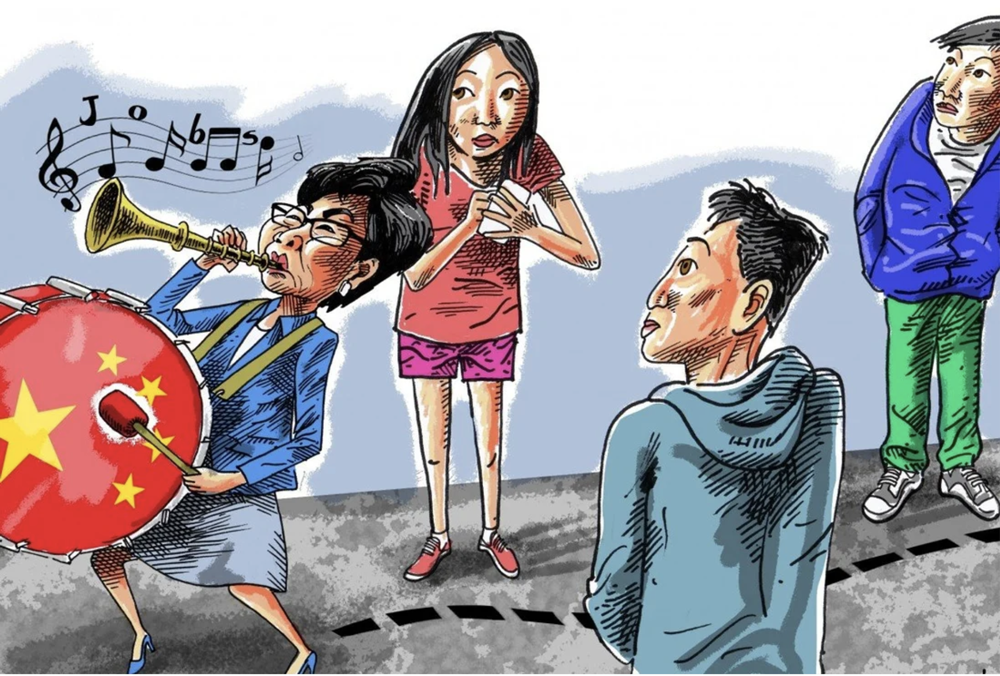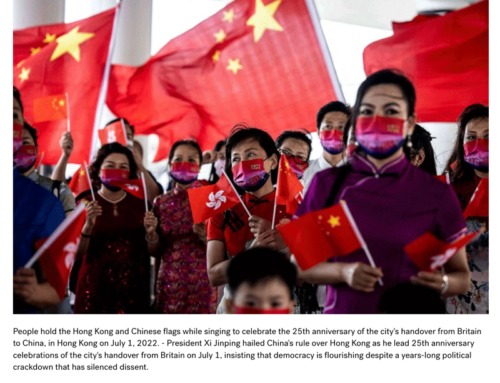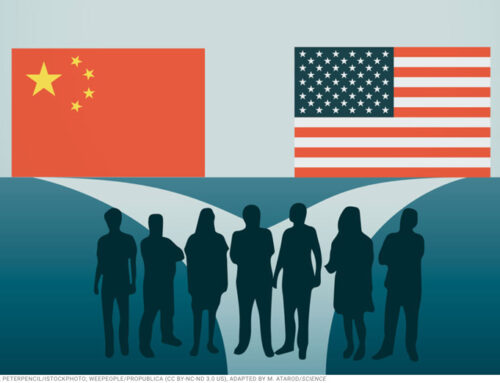- Those who want to work on the mainland will go, but the government should not expect a one-off policy to resolve anti-mainland sentiment among Hong Kong youths
- Young people need to know the benefits and risks of working on the mainland, as well as the practical, psychological and emotional issues they might face
In her recent policy address, Chief Executive Carrie Lam Cheng Yuet-ngor proposed a programme to help young Hongkongers find jobs on the mainland. She asserted that her plan to spend HK$430 million (US$55.5 million) on the Greater Bay Area Youth Employment Scheme targets jobless youth – unemployment among 20-24 year-olds hit 19.7 per cent this year while the overall rate was 6.4 per cent.
However, there’s an underlying purpose: by increasing their awareness of conditions on the mainland, Hong Kong’s young people will become more Chinese, shed their Hong Kong identity and accept the legitimacy of the Hong Kong and Beijing governments.
When I heard Lam’s plan, I recalled a meeting in autumn 2019 with five of my MA students, four from the mainland and one local. I asked about their post-graduation plans. One mainlander encouraged the Hong Kong student to consider moving north, where he might get a higher salary in Guangdong. His response: he would gladly earn 30 per cent less in return for continued access to Facebook.
Hong Kong youth have little Chinese identity. A survey in 2014 on the eve of Occupy Central found that, among those aged 18-29, only 5 per cent felt Chinese, 10 per cent felt they were Hong Kong Chinese, 30 per cent felt they were a Chinese Hongkonger and 55 per cent felt they were a Hong Kong person. A survey this June showed that 75 per cent identify as Hongkongers or Hongkongers in China, while only 12 per cent feel Chinese.
As the Hong Kong government rolls out the programme, who is likely to see it positively and head north? A 2009 study – which I directed – supported by the Central Policy Unit interviewed 235 Hongkongers living on the mainland, while a 2015 study looked at Hong Kong youth’s perceptions of the mainland.
In 2009, sojourners became more “Chinese” living on the mainland. While 14 per cent saw themselves as Hongkongers before moving, only 2 per cent felt that way after moving north. Those identifying as Hongkongers and Chinese before moving decreased from 23 per cent to 14 per cent, while those feeling “Chinese but also a Hongkonger” or just Chinese rose from 16 per cent to 28 per cent.
Second, most Hongkongers had a positive experience on the mainland as 6.1 per cent liked it very much and 74.9 per cent liked it. Meanwhile, 15.8 per cent disliked it and 3.2 per cent disliked it very much.
Those who adapted to mainland life included those who watched mainland media, socialised with mainlanders and volunteered to work for their company in the north, as compared to those forced by their companies to go north. College education also increased adaptability. Those most likely to succeed included those who felt that individual rights and freedoms on the mainland and Hong Kong were relatively similar. Having at least a “mixed” identity was also important.
Who adapted poorly? Those with few friends on the mainland, those dissatisfied with the quality of life in China and people possessed of a stronger Hong Kong identity.
The CPU-funded project in 2015 asked people in Hong Kong about their attitudes towards the mainland. As the interviews were a year after Occupy Central, 44.4 per cent of young respondents identified themselves as Hongkongers, while 39.1 per cent were Hongkongers and Chinese, totalling 83.5 per cent whose dominant identity was a Hong Kong person. Only 4.2 per cent reported themselves as Chinese and 10.8 per cent identified as Chinese but also a Hongkonger.
In 2015, trust in Beijing was low and affected by age. Among 18-34 year-olds, 9.5 per cent said they trusted Beijing, 29.3 per cent were “in-between” and 61.2 per cent expressed “distrust”. For those aged 35-54, 25.8 per cent registered trust, 44.6 per cent were in-between and 29.5 per cent were distrusting, while those over 55 were most trusting, at 35.9 per cent, 34.6 per cent and 29.5 per cent respectively.
Support for government efforts to promote jobs on the mainland were positive among those born across the border, the unemployed, the economically inactive, those from lower classes, those who felt more Chinese and were pro-establishment.
However, while 55.8 per cent of young people were willing to participate in mainland internships, which enhanced their resumes, the figures for job-seeking and academic study were 37.4 per cent and 29.3 per cent respectively.
Who was willing to work on the mainland in 2015? Men and those who rated the mainland more highly, viewed China opportunities favourably and saw little difficulty in getting a suitable job across the border were significantly more willing to work on the mainland.
In focus groups, young respondents expressed negative views of the mainland. Pollution, corruption, lack of freedom, a lack of comprehensive welfare and health care systems, the “rule of man”, low wages, poor food safety and “uncivilised” people were frequently mentioned drawbacks. Other deterrents included a lack of knowledge of the mainland labour market and distance from home.
What lessons can we learn? Combining the two surveys, young people born on the mainland are most willing to move there for a job. Second, those with pro-government attitudes, a stronger Chinese identity, those who believe they can improve their standard of living on the mainland, college graduates, and those with good informational and emotional preparation, are most likely to be attracted to the programme.
Additionally, in 2009, those who adapted best included those who volunteered, were older and employees of a Hong Kong company working on the mainland. Those working for a mainland company had more difficulty.
The most important action Lam can take is not to politicise the programme. People who want to go, probably those born on the mainland or children of a mainland parent, and those with a strong Chinese identity, will go. The government should not expect a one-off policy like this to resolve hostility among Hong Kong youths towards the mainland.
The programme also needs transparency. Young people need to know the benefits and risks of working on the mainland and the advantages such a job may bring to their careers. Moreover, there are practical, psychological and emotional issues that need to be addressed if the programme is to succeed. After all, they really are two systems.
David Zweig is Professor Emeritus at the Hong Kong University of Science and Technology and director of Transnational China Consulting Limited






Leave A Comment